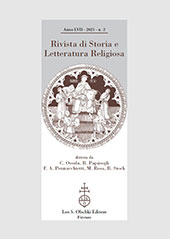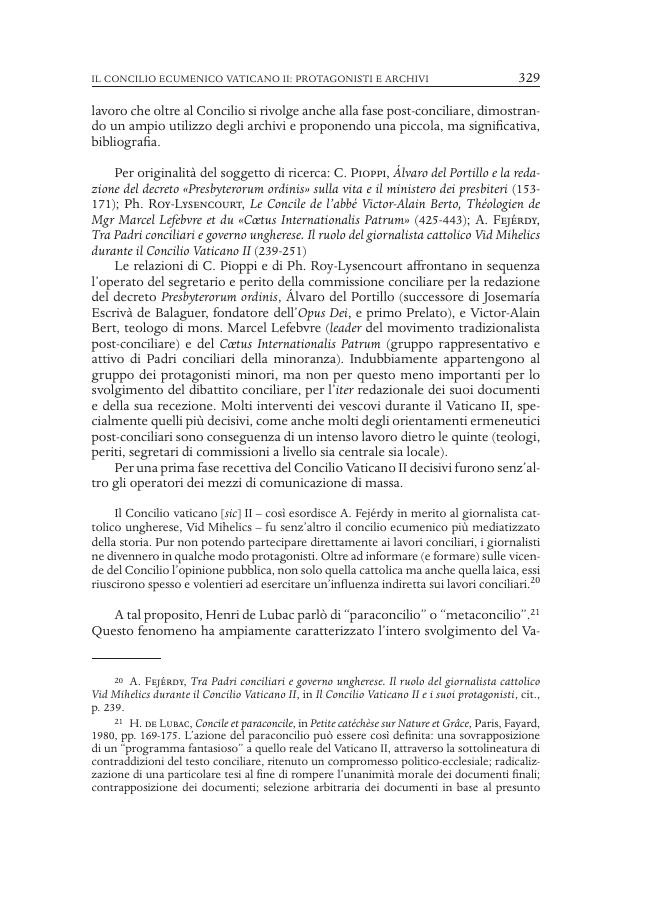Il Concilio Ecumenico Vaticano II : protagonisti e archivi
P. 323-336
Strongly criticized in the treatise De dignitate et excellentia hominis by the Florentine humanist Giannozzo Manetti (1396-1459), the De bono mortis by Ambrogio di Milano (339-397) is believed to be the sermon which most reflects the spirituality of the Milan bishop. In this treatise, the civis florentinus, refuted what Cardinal Lotario dei Conti di Segni (1161-1216) argued about the condition of man in his De miseria conditionis humanæ (also known as De contemptu mundi). However, the accusations he leveled at the bishop's De bono mortis – have remained unchanged for well over five centuries, to our days without criticism.
In my research, after having revealed that Ambrogio and Manetti have a different understanding of death, I demonstrate not only the attested presence and availability of the Ambrosian sermon in the libraries accessible to Manetti, but I identify four main common points between the two works. In my opinion, the reasons that led Manetti not to have been able or have wanted to clearly quote Ambrose, reside in the historical, political and economic situation in which he found himself working in the Court of Alfonso d'Aragona (1359-1458).
All this is further proof of the multifaceted personality of Manetti who wanders from one shore to the other of the ideological context of the time. It also testifies to the disadvantage of his intellectual honesty and originality and in favour of his major intent to fully satisfy the desires of those who commissioned the work (in this case by the king of Aragon himself). [Publisher's text]
-
Articles from the same issue (available individually)
-
Information
DOI: 10.1400/287589
ISSN: 2035-7583
DISCIPLINES



